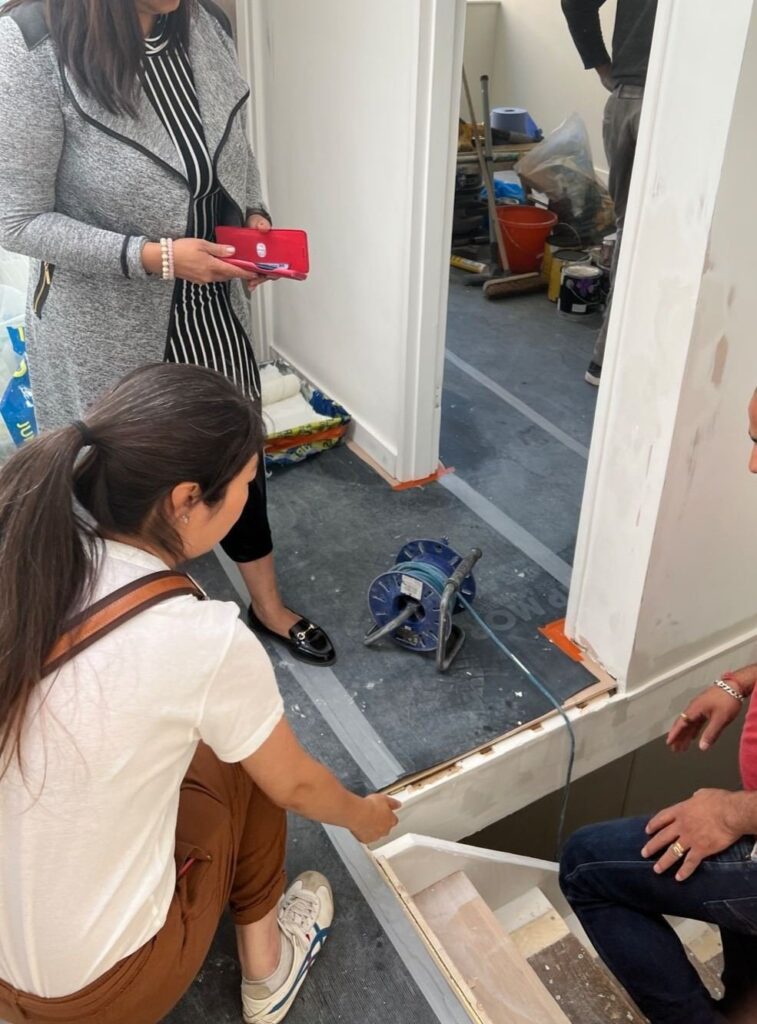WHAT’S THE DIFFERENCE BETWEEN A PROJECT CO-ORDINATOR AND PROJECT MANAGER?
This month we’re full steam ahead at Cigal Kaplan Interiors and thought we’d write more in-depth about the design process. Specifically, we wanted to answer a question that lots of clients ask us:
What is the difference between a Project Coordinator and a Project Manager?
THE ROLE OF A PROJECT COORDINATOR
Simply put, the Cigal Kaplan Interiors team will act as project coordinators throughout the design process. This is standard practice in the industry – all employees and directors of any specific interior design studio should act as project coordinators (if they’re reputable!)
So, what exactly does this role entail?
Mainly, organising everyone involved in the design process, including the project manager – we’ll discuss their role later on in this blog.
The coordinator oversees all activities that go into a project, managing from start to finish. As a result, some typical responsibilities of a co-ordinator include budgeting, scheming, organisation of deliveries, floor planning, calendar management and much more.

A design coordinator will also need to be proficient in a number of ways, which might differ from the skills needed for a project manager. Some examples of this might include things like software expertise in things like AutoCAD, Sketchup, Vectorworks and Photoshop, data entry, presenting abilities and confidence with programs such as PowerPoint and Excel.
In addition, the project coordinator will not be on-site regularly, whereas, the project manager will be on-site for the project all the time – it is their responsibility to be at the builders, contractors and project co-ordinator’s beck and call.
THE ROLE OF A PROJECT MANAGER
Project Managers are often outsourced by interior design companies or architectural firms, but work together with the project coordinator on the project.
The role of a project manager is to liaise with the coordinator to make things happen.
Typically, the project coordinator will plan all the design details and will relay this information to the project manager, who can tell them if these plans are possible, will flag up and resolve any issues (such as structural problems or legal requirements), give quotes, and will relay all design intentions to the builders and contractors on-site (who will also be sourced by the design manager). All this will happen at the early stages of the design process, so problems can be resolved quickly and rectified by the project manager, who will come around to inspect the project site before work begins.
Skills of a project manager include architectural and legal knowledge, having connections with the top builders and contractors (and therefore good organisational and interpersonal skills), a good understanding of finances and budgeting, and confidence in multitasking and prioritisation.

A QUICK SUMMARY
The key difference between a coordinator and a manager is that the coordinator is the main authority in the design process. The manager should work for the coordinator, and not the other way around.
The project manager is responsible for the project going to plan since they oversee what happens on site from day-to-day through to the project’s completion. However, from our point of view as designers (and therefore project coordinators) we are also responsible for hiring professional and competent project managers! Throughout the years at Cigal Kaplan Interiors we have acquired connections with some of the best professionals in the industry and feel very confident in our choice of past and current project managers – why not hire us for your home renovation and let us show you exactly what we mean?
Thank you for reading this month’s blog. Do let us know if you’d like us to write about a particular subject or if you have questions!








